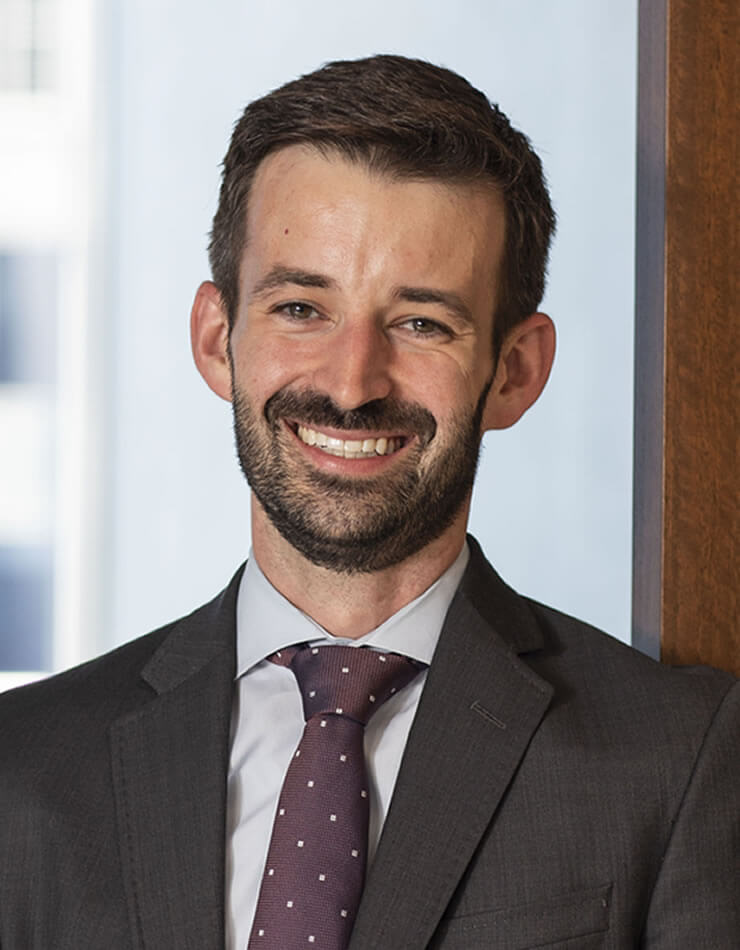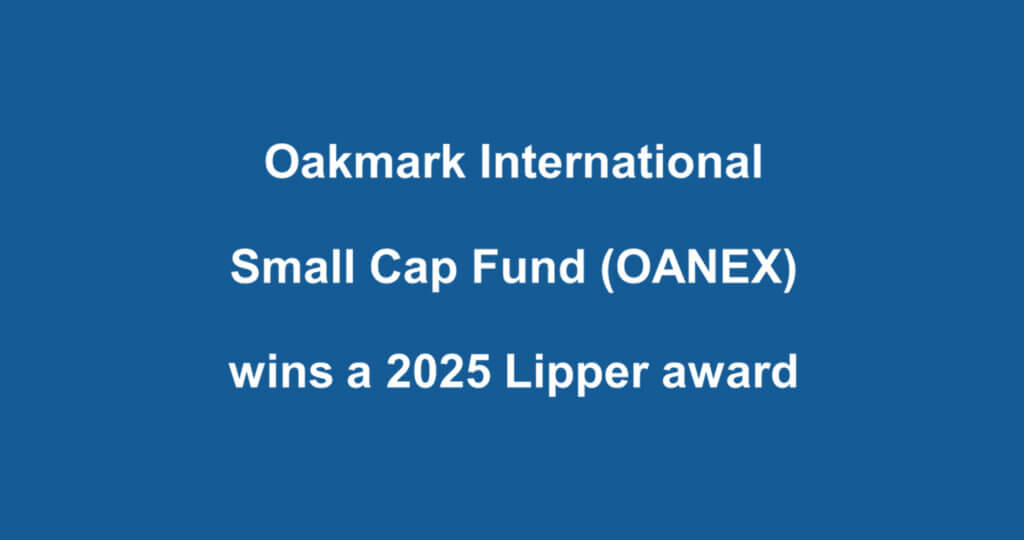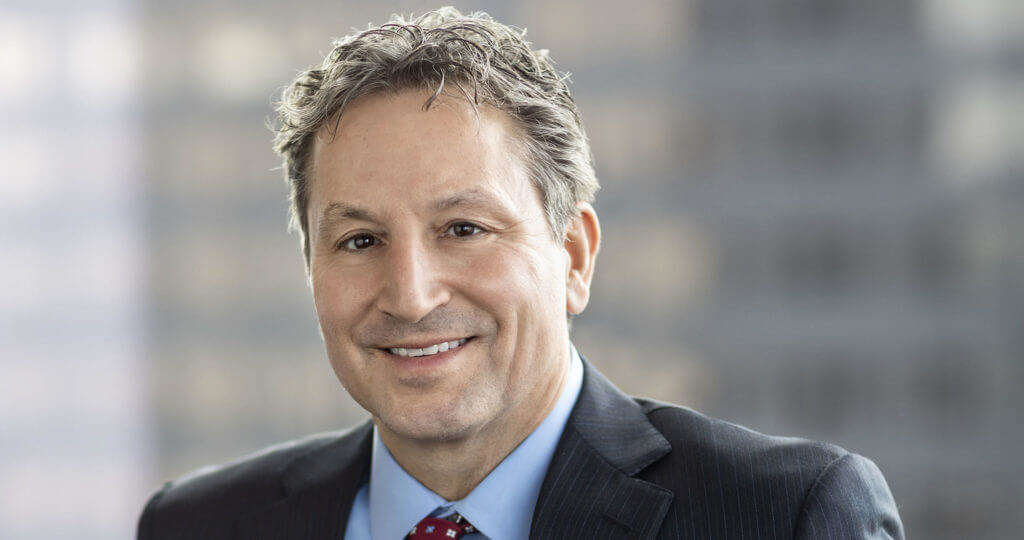Oakmark International Small Cap Fund – Investor Class
Average Annual Total Returns 09/30/22
Since Inception 11/01/95 7.40%
10-year 3.83%
5-year -3.07%
1-year -32.37%
3-month -11.19%
Expense Ratio: 1.35%
Expense ratios are based on estimated amounts for the current fiscal year; actual expenses may vary.
Past performance is no guarantee of future results. The performance data quoted represents past performance. Current performance may be lower or higher than the performance data quoted. The investment return and principal value vary so that an investor’s shares when redeemed may be worth more or less than the original cost. To obtain the most recent month-end performance data, view it here.
The Oakmark International Small Cap Fund returned -32.4% for the fiscal year ending September 30, compared to its benchmark, the MSCI World ex U.S. Small Cap Index, which returned -30.8% for the same period. The Fund underperformed the benchmark for the quarter end, returning -11.2%, compared to the MSCI World ex U.S. Small Cap Index return of -9.5% for the period. Since the Fund’s inception on November 1, 1995, it has returned an average of 7% per year. For additional color on our views of the market environment during the most recent quarter end, please see our Market Commentary.
Incitec Pivot (Australia), a large manufacturer of mining explosives and fertilizers, was a top contributor to the Fund’s performance for the one-year period. The company has been a beneficiary from commodity price increases, notably for its fertilizer business (di-ammonium phosphate and urea) as well as the ammonia produced at a large-scale plant in Waggaman, Louisiana. This, combined with strong underlying demand for explosives for the mining industry, has led to a significant increase in profitability. This increase was evident in the first-half results the company released in May, which indicated that EBIT had increased by 478% year-over-year, albeit against an easy comparison. In addition, the company announced that it intended to split the company into two: Dyno Nobel and Incitec Pivot Fertilizers. The rationale being that the companies have limited synergy, different end markets, different capital needs and should trade at different valuations. The separation makes sense, in our view, and is something we have eyed as possible for some time. While Incitec is well-placed to benefit from the current market environment and we believe that management is pursuing the right strategy, we trimmed and then exited our position and redeployed the proceeds into other investments as the company approached our view of its intrinsic value.
Software AG (Germany), a software and services technology company, was a top detractor to the Fund for both the quarter and one-year period. The company’s second-quarter results indicated that bookings for the company’s growth business, Digital Business Platform, grew more slowly than had been anticipated as enterprise software decision timelines elongated. As a result, management downgraded bookings growth in this segment from 15%-25% to 12%-18%. We spoke with CFO Matthias Heiden after the release and while market factors moved against them, he also made it clear that sales execution could have been better. A number of internal changes, including the creation of a COO role as well as hiring a new chief revenue officer, Joshua Husk, should help to improve here. Encouragingly, management does not see any signs of slippage in the renewal pipeline nor the increase in gross churn. Despite the bookings guidance reduction, revenue and margin guidance for 2022 was maintained and the company also reiterated its 2023 medium-term guidance. We think that Software AG continues to possess strong products that it should be able to increasingly monetize in the coming years. Given this, along with a very appealing valuation, we believe Software AG remains an attractive investment. We added to our position during the quarter.
Vitesco Technologies (Germany), a leading supplier of components for electromobility in the auto industry, was the top contributor to the Fund for the quarter. Vitesco reported results that had exceeded market expectations and maintained guidance for the fiscal year despite increasing inflation, a weaker economic environment and continued supply chain issues. The company is successfully raising prices with OEM customers to offset inflation and now expects to achieve a nearly 100% recovery in the second half. As a result, the profitability of the company’s core portfolio has been relatively resilient. Order intake for Vitesco’s burgeoning electrification products remains robust at EUR 2.3 billion in the second quarter and EUR 5.7 billion year-to-date. The company has also indicated that the order books are already sufficient to deliver the 2025 target of EUR 2 billion of revenue for the electrification technology segment. We are encouraged by the company’s momentum in electrification as well as the resilience of its more mature products. We believe Vitesco remains an attractive investment.
During the quarter, we sold our positions in Healius (Australia), NOS SGPS (Portugal) and Incitec Pivot (Australia) in favor of names that, in our opinion, offer more potential upside. We initiated a position in GN Store Nord (Denmark) during the quarter. GN Store Nord operates out of two segments, hearing and audio. Hearing is the traditional core of the business and it sells hearing aids from the Resound & Beltone brands, while the audio segment includes Jabra and BlueParrot. We like that hearing aids are a market with steady growth of around 5% that has proven resilient in economic downturns. The company is coming off a product downcycle that resulted in loss of market share. However, we believe new launches in the back half of 2022 will help it regain its competitive position. Jabra captures about 55% of the enterprise headsets market, which is growing at double digits as digital communication and collaboration tools proliferate. Component shortages pressured topline results in the second half of 2021 and the beginning of 2022. As these issues resolve, though, growth should return to trend, in our estimation.
Geographically, we ended the quarter and fiscal year with approximately 77% of our holdings in Europe and the U.K., 12% in Asia, 4% in Australasia, and 1% in Africa/Middle East (Israel). The remaining positions are in the Americas with 5% in Latin America (Mexico) and 2% in North America (Canada).
Thank you for your continued confidence in our investment process.
The securities mentioned above comprise the following percentages of the Oakmark International Small Cap Fund’s total net assets as of 09/30/2022: Dyno Nobel 0%, GN Store Nord 0.7%, Healius 0%, Incitec Pivot 0%, NOS SGPS 0%, Software AG 3.2% and Vitesco Technologies Group 1.8% Portfolio holdings are subject to change without notice and are not intended as recommendations of individual stocks.
EBIT is a measure of a firm’s profit that includes all expenses except interest and income tax expenses. It is the difference between operating revenues and operating expenses.
The MSCI World ex US Small Cap Index (Net) is designed to measure performance of small-cap stocks across 22 of 23 Developed Markets (excluding the United States). The index covers approximately 14% of the free float-adjusted market capitalization in each country. This benchmark calculates reinvested dividends net of withholding taxes. This index is unmanaged and investors cannot invest directly in this index.
On occasion, Harris may determine, based on its analysis of a particular multi-national issuer, that a country classification different from MSCI best reflects the issuer’s country of investment risk. In these instances, reports with country weights and performance attribution will differ from reports using MSCI classifications. Harris uses its own country classifications in its reporting processes, and these classifications are reflected in the included materials.
The Fund’s portfolio tends to be invested in a relatively small number of stocks. As a result, the appreciation or depreciation of any one security held by the Fund will have a greater impact on the Fund’s net asset value than it would if the Fund invested in a larger number of securities. Although that strategy has the potential to generate attractive returns over time, it also increases the Fund’s volatility.
The stocks of smaller companies often involve more risk than the stocks of larger companies. Stocks of small companies tend to be more volatile and have a smaller public market than stocks of larger companies. Small companies may have a shorter history of operations than larger companies, may not have as great an ability to raise additional capital and may have a less diversified product line, making them more susceptible to market pressure.
Investing in foreign securities presents risks that in some ways may be greater than U.S. investments. Those risks include: currency fluctuation; different regulation, accounting standards, trading practices and levels of available information; generally higher transaction costs; and political risks.
The information, data, analyses, and opinions presented herein (including current investment themes, the portfolio managers’ research and investment process, and portfolio characteristics) are for informational purposes only and represent the investments and views of the portfolio managers and Harris Associates L.P. as of the date written and are subject to change and may change based on market and other conditions and without notice. This content is not a recommendation of or an offer to buy or sell a security and is not warranted to be correct, complete or accurate.
Certain comments herein are based on current expectations and are considered “forward-looking statements”. These forward looking statements reflect assumptions and analyses made by the portfolio managers and Harris Associates L.P. based on their experience and perception of historical trends, current conditions, expected future developments, and other factors they believe are relevant. Actual future results are subject to a number of investment and other risks and may prove to be different from expectations. Readers are cautioned not to place undue reliance on the forward-looking statements.
All information provided is as of 09/30/2022 unless otherwise specified.








